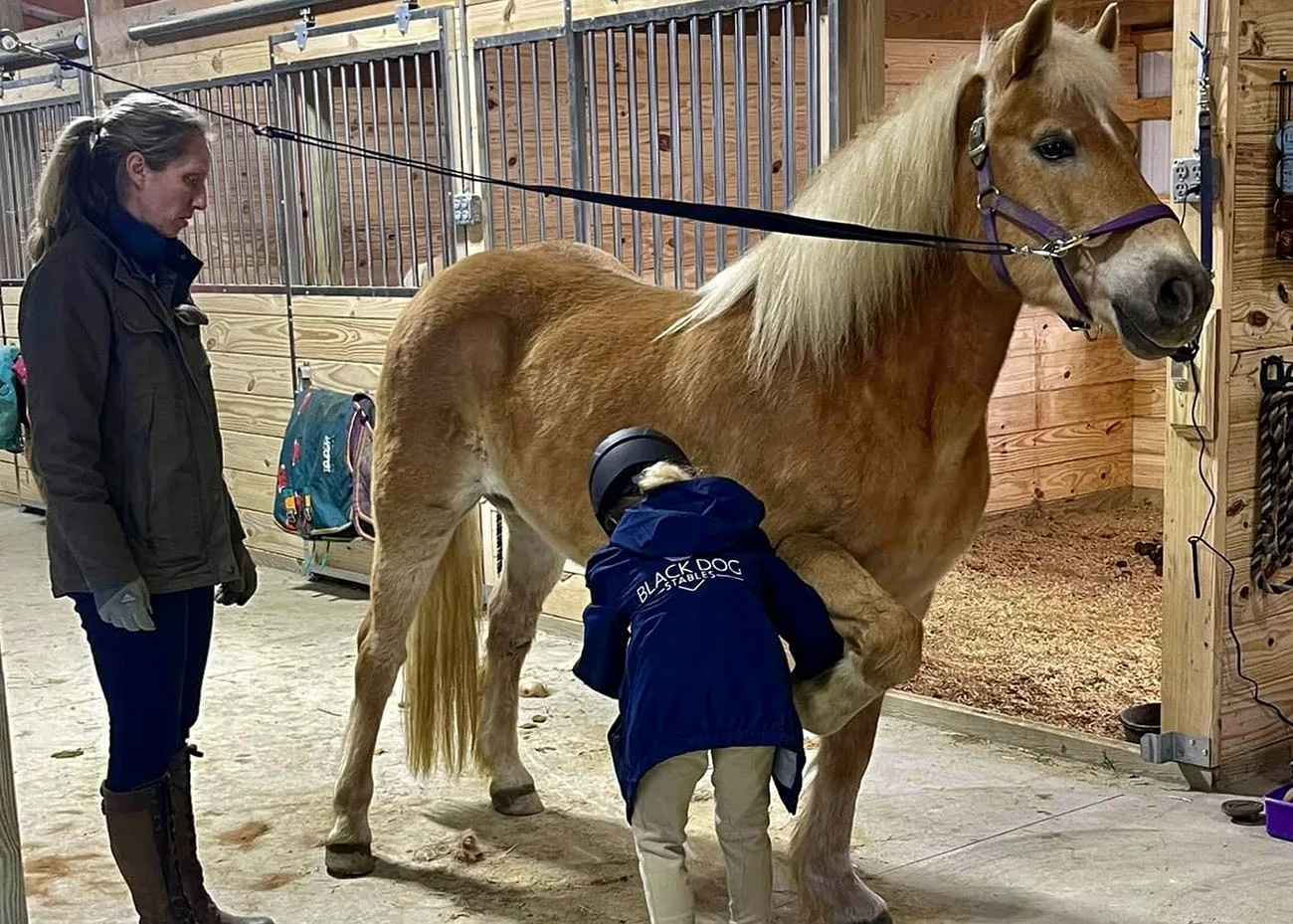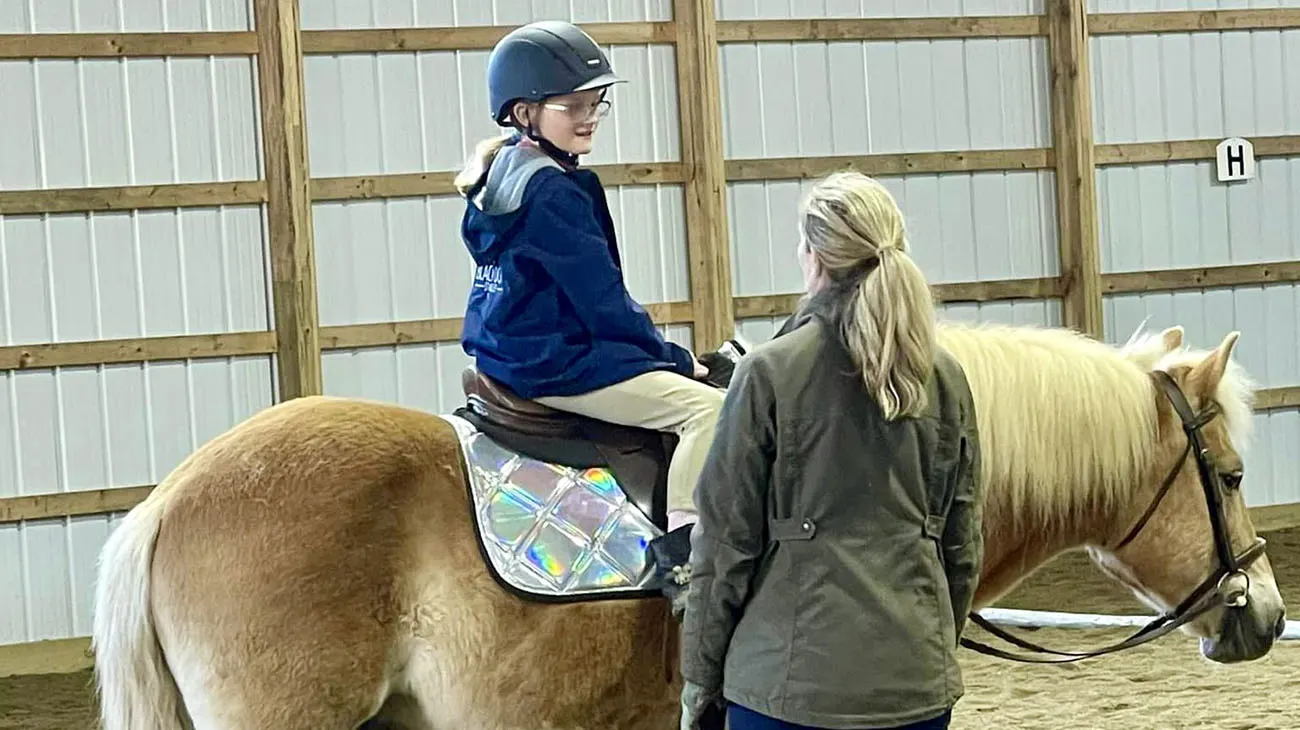I just signed my toddler up for a summer gymnastics program so he can climb on things without getting yelled at. I paid a $40 deposit when I registered, and I’ll pay the balance of the tuition a week before the first class. For nine Saturdays, Otto will have a spot in their program. If we show up for one of those classes, or all nine, or somewhere in between, it still costs me right around $200. What I’m paying for is my son’s space in the program, no matter how often we are able to attend. There are no make-up classes. There are no refunds. Their policies are clear. And I didn’t bat an eye when I wrote out the check.
It’s time riding instructors and lesson-program managers follow suit.
I’m in a Facebook group for riding instructors, and it feels like half the posts ask about cancellation policies, make-up lessons, or how to handle riders who just don’t show up.
Switching to prepaid sessions eliminates these problems entirely. And the benefits that it adds to a program make the change a no-brainer.

In January 2023, we restructured our lesson program into what we call “semesters.” We divide the year into four semesters: winter, spring, summer and fall, based around local school calendars and major holidays. Students sign up for a semester at a time (in the same way that they sign up for baseball or taekwondo or that toddler gymnastics program) and commit to that day and time for the duration of the session.
Our students have two payment options: either pay in full by the first lesson of the semester, or split the tuition into two equal payments, making the first payment at or before the first lesson, and the second payment mid-way through. We build in a few make-up days at the end of each semester; each student is entitled to one make-up lesson per session. Any additional lessons missed are forfeited, and no-show lessons are not eligible for make-ups.
The change has had only positive effects for our program, our instructors, our horses and our riders. We gave current students two months’ notice before this new format went into effect. Only a few families in the program even questioned the new policies. And integrating new riders into this format has been seamless.
I strongly believe that this format has the ability to have a positive impact on our industry as a whole, so I’m going to tell you exactly how it works for us. Feel free to use or adapt whatever aspects might work for you and your program.
Here are just some of the positives that we’ve seen so far:
1. Stakeholders—instructors and stable owners—know exactly how much money is coming in from lessons each semester.
ADVERTISEMENT
2. Our students are more committed to their riding, and there are far fewer last-minute cancellations because the lessons are already paid for.
3. We can more intentionally plan our school horses’ schedules, keeping them happier and healthier.
4. We no longer have to chase down clients to pay for missed lessons (which we had to do with our old 24-hour cancellation policy, and which I hated because somehow I always felt like the bad guy even though our policy was communicated clearly).
If any of this sounds promising, let me tell you a little more about our program, where we started and how a semester-based program works for us.

Our riding program is young—just five years old this spring. We’re a small, beginner-friendly stable in a middle-class suburb of Pittsburgh. We have two instructors, about 45 weekly riders, eight horses, and have had a sizable wait list for lessons since COVID.
We don’t do any boarding, leasing or public trail rides. We offer weekly hunter/jumper lessons, summer camps, horsemanship clinics, and on-site schooling shows for our students. We are not a big, busy show barn. Instead, riding at our stables is generally just one extracurricular activity out of many that our students do during the week. (And often, it was the extracurricular that was easiest to skip when schedules got busy because our previous, very flexible cancellation policy enabled that.)
When we bought the farm and started the lesson program, I was the sole instructor and only taught one or two afternoons per week, as a part-time, after-hours hobby I worked around my full-time career as a high school English teacher. Students paid by the lesson and I had a loose 24-hour cancellation policy: If students canceled outside of that window, they didn’t have to pay. Inside of 24 hours, they were to pay for the lesson upon their return. I regularly—as I know many of us do—let “good” clients slide if they canceled late with a valid reason. If I felt like people were taking advantage, I had to chase down students who violated the policy to get paid for the missed lesson.
A year later, with the program continuing to grow, I added a second instructor a few days a week, Meagan Greygor, of Nonpareil Equine Services. She took over the majority of lessons in fall 2021, after I had my first child, while I focused on camps, educational programs and our littlest students—my personal passions. Meagan, more experienced and educated than I, with a degree in equine science and years of experience under her belt, was happy to take on more of our older and more advanced riders as they progressed.
But now that another person’s income was dependent on the lesson program, students cancelling mattered more. I felt strongly that Meagan should be paid for any lesson on her schedule, even if students didn’t show up. If she was at the farm—at work—she deserved to be paid for her time. We had to get stricter about our 24-hour cancellation policy, and we reminded our families of that policy in newsletters and e-mails and face-to-face. But we still had to chase down the handful of families who missed often, or who tried to evade the fee.
In response we switched to monthly payments. In 2022, students were required to pay up front for a month’s worth of lessons. However, if they knew at the beginning of the month that they were going to miss a week, they didn’t have to pay for that lesson. For example, if there were five Thursdays in May, but a student knew that they had a choir concert on the third, they only had to pay for the four lessons they would attend.
ADVERTISEMENT
Most families appreciated this flexibility, and we appreciated having lessons paid ahead of time and not having to chase down cancellations for payment. However, there were families that abused the privilege, and we noticed that a handful regularly missed multiple lessons every month. When a teenage rider complained about not progressing, we looked back at the calendar and realized she had only ridden 12 times in the previous seven months, during a period she was booked for more than twice that number of lessons. Something had to change.
We considered a move to four semesters, given their normalcy for so many other activities. Last fall we organized this year’s calendar, dividing the year into semesters, giving ourselves and our horses a few built-in breaks, and sending the information to our families. We haven’t looked back.
We know exactly how much money our lessons will bring in each semester. We can plan our horses’ schedules with intentionality for both student needs and horse workload. We don’t have to chase down people for missed lessons; the onus is on them to schedule their one make-up lesson with us.
When I was looking for tiny-tot gymnastics programs for my son, if I had the option of to pay-as-you-go, I would have jumped on it. It would have been great not to pay for that week when we’re on vacation, or to know that we’d be able to make up a class if Otto got sick and had to miss. But there aren’t any programs like that in the area, so I paid for the summer semester, understanding that the owners of the company have coaches and rent and other bills to pay.
Fellow instructors: Our farms and our horses cost way more than a balance beam and a few stackable foam blocks (none of which can colic or throw shoes or kick each other in the pasture). Horses have always been expensive, and their cost and care is only rising. We are entitled to the same consistency and stability from our students and our program as most other children’s sports and activities can count on.
If you’re struggling with canceled lessons, unpredictable income, or riders not committing to the sport as they should, and you want a more sustainable program, you should think about making the switch, too. If every riding program expected this type of commitment from their riders, everyone benefits: stable owners, instructors, school horses and students, too.
Sarah K. Susa is the owner of Black Dog Stables just north of Pittsburgh, Pa, where she resides with her husband and young son. She has a B.A. in English and Creative Writing from Allegheny College and an M.Ed. from The University of Pennsylvania. She teaches high school English full-time, teaches riding lessons and facilitates educational programs at Black Dog Stables, and has no idea what you mean by the concept of free time.














